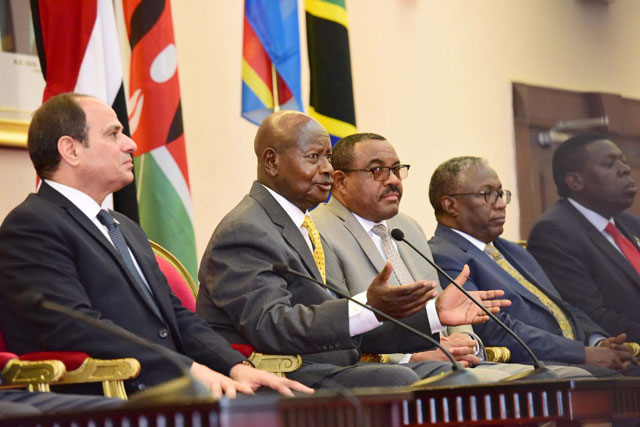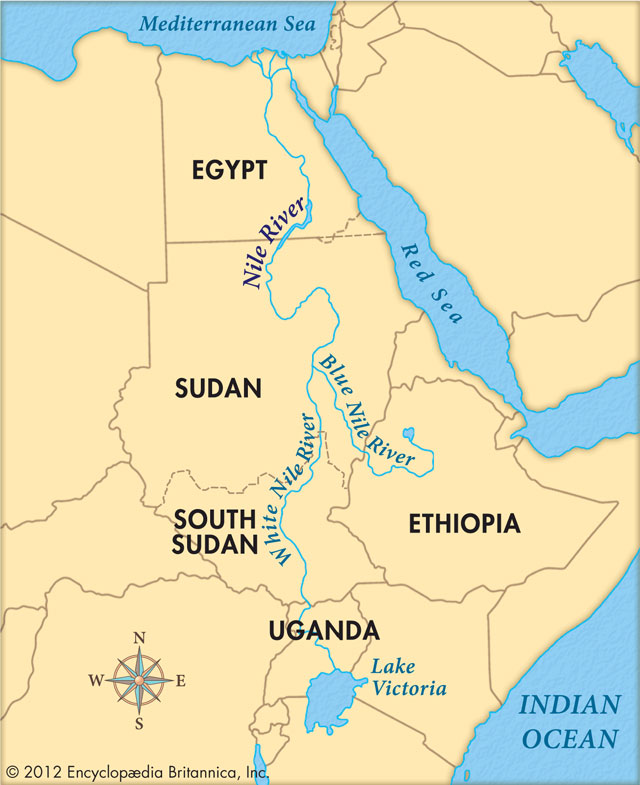
Nile Council of Ministers call on Nile Basin countries to increase coordination in planning of water use
Addis Ababa, Ethiopia | THE INDEPENDENT | Projections of future water demand based on national plans show a widening gap between water availability and water demand, which could lead to increasing water conflict within countries and between countries, said the Nile Council of Ministers at the just concluded 6th Nile Basin Development Forum.
In a communiqué released at the closing of the science-policy dialogue forum in Addis Ababa, Ethiopia, the ministers said that dealing with this challenge requires Nile Basin countries to embrace a nexus approach to ensure the coordinated planning and implementation of investments in the water supply, food and energy sectors.
“The challenge also requires Nile riparian countries to increase coordination in the planning of future water use, and cooperatively take action to implement measures to help bridge the gap between water availability and water demand in the Basin,” the communiqué reads.
#NBDF6 key message on #water security: Future demands for water are projected to outstrip supply, and lead to intensification of competition between water use sectors and tensions between #Nile riparian countries. #NileInvestments #NileBasin pic.twitter.com/CD77MLnmrY
— NileBasin Initiative (@nbiweb) May 6, 2021
The Nile Basin Development Forum (NBDF) is a high-level regional event convened every three years by the Nile Basin Initiative (NBI) in collaboration with its 10 Member States and in partnership with development partners.
The event is a science-policy dialogue that provides an opportunity for sharing latest information, knowledge and best practices, expand networks, build a common understanding of the development challenges and opportunities of the basin, and provide suggestions for a common course of action for the sustainable management and development of the basin for the benefit of all the riparians of the Basin.
The objectives of the Forum are to build common understanding on the status of the water and natural resources base of the Nile Basin among stakeholders, examine the shared complex challenges and, exchange perspectives on the solutions for addressing these challenges.

Consensus on Nile possible
The Ministers go on to say that consensus on the Nile is possible and that countries need to commit to continue cooperating in good faith and working together to find peaceful solutions to differences and identify mutually acceptable solutions to the challenges facing the Nile Basin.
“Countries also need to renew efforts to bring back Egypt into the fold of cooperation on the Nile,” reads the communiqué.
The Nile Basin Initiative is the anchor of the big #NileBasin ship. If it doesn’t hold, the ship will sink – Eng. Innocent Ntabana, former NBI Secretariat Executive Director #NBDF6 @intabana pic.twitter.com/LfgAaD4UmU
— NileBasin Initiative (@nbiweb) May 7, 2021
The communiqué adds, “It is important to have Heads of States and Governments engaged in championing regional investments that confer a basket of benefits to all riparian communities. In this regard, the Nile countries need to speed up preparations for a second Nile Heads of States and Governments Summit.”
NBDF forums are attended by a broad range of stakeholders who include ministers in charge of water and foreign affairs in Nile riparian countries, other senior government officials, parliamentarians, water resource managers, river basin organisations, economists, environmentalists, development planners, academics, researchers, media practitioners, civil society, local and international NGOs, UN agencies, and private individuals and corporations.
The 6th NBDF event
The NBDF event that was held this year 2021 was the sixth edition of this event. Due to the COVID-19 pandemic, this event was held mostly virtually. Preceding this closing event, the NBI organised 30 webinars that were attended by 824 persons from 55 different nationalities from around the world. The webinars were used to discuss a wide range of topics on the Nile under the overall theme of “Re-thinking regional investments in the Nile Basin”.
The Nile Basin Development Forum was organised with support from the Federal German Government through GIZ as well as the World Bank and Cooperation in International Waters in Africa. It was hosted by the Government of Ethiopia.
The Nile Basin Initiative is a regional inter-governmental partnership launched by the Nile Basin countries on February 22, 1999, to manage and develop the shared Nile Basin water and related resources in a cooperative manner, share substantial socio-economic benefits, and promote regional peace and security. There are 10 NBI Member States: Burundi, the Democratic Republic of Congo, Egypt, Ethiopia, Kenya, Rwanda, South Sudan, Sudan, Tanzania and Uganda. Eritrea participates as an observer.
VIDEO
Virtual Nile Media awards
Also held in Addis Ababa, were the tri-annual Nile Media Awards, at which The Independent’s Ronald Musoke won the Print Category award while Davis Mugume was on the winning team in the Collaborative Story Category.
Other Ugandan finalists were Sarah Natoolo in the radio category and Feliz Basiime in digital, who came up runners-up.
“Constructive dialogue needs well researched facts. In the Nile Basin such dialogue is key for building consensus and finding solutions to challenges. The media reflect public opinion in the region and influence it and government rely on the media to build a common ground for policy intervention,” said Matthias Schauer, German Ambassador to Uganda speaking at the Nile Media Awards 2021.
 The Independent Uganda: You get the Truth we Pay the Price
The Independent Uganda: You get the Truth we Pay the Price



